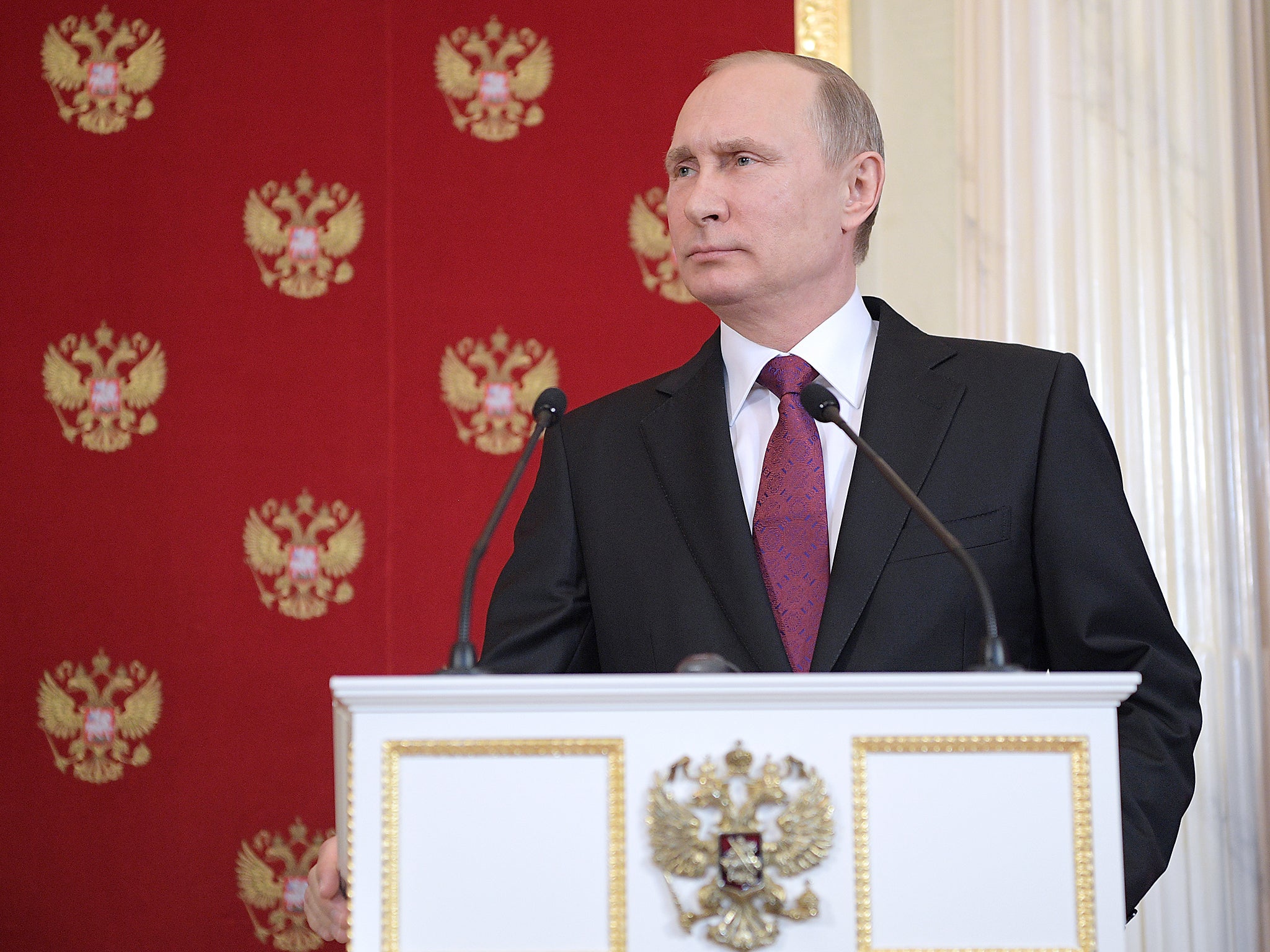The only positive in Trump's election was the possibility of good relations with Russia – now what?
Here we go again with that Einsteinian definition of insanity. Every time the geniuses behind the triumphs in Iraq, Afghanistan and Libya strike a moral pose to lecture Russia, Russia becomes that bit more entrenched


Perhaps the cathartic experience of being dragged off his plane to Moscow cleared his mind, but Boris Johnson has said something sensible.
It wasn’t much, he may not have meant it, and he hasn’t a clue how to bring it about. Even if he did, a British foreign secretary’s opinion is a devalued currency these days even more so than sterling.
But still, it doesn’t happen that often that we should ignore it when it does. So balaclavas off to Boris, on being unmuzzled by the PM to give his twopenn’orth on Syria, for this: “I think the Russians need a way out and a way forward.”
Well, duh, you might say. Of course the Russians need a way out. The Russians have needed a way out, and from more than Syria, for ages. The issue is whether the United States can find one and offer it without the usual mix of contempt and condescension which inevitably pushes the Russians even further into their corner.
And the answer, you suspect, is this: Don’t. Be. Silly.
The post-Cold War history of relations with Russia has been one of counterproductive idiocy – largely because, in tone, it isn’t post-Cold War at all. After a brief, relatively amicable period following the collapse of the Soviets, the “Evil Empire” mindset reasserted itself.

When Russia needed gently guiding towards a permanent accommodation with (if not a lusty embracing of) Western democratic values, the bear was continually poked with a sharpened stick. To a country which constructed a vast defensive empire to protect the integrity of her borders, encouraging Ukraine to join Nato was a needlessly provocative move with predictable results.
Nothing that follows should be misinterpreted as a paean to Vladimir Putin, let alone any sort of justification for Russian complicity (if there was any) in Assad’s nerve-gas outrage of last week (assuming he was responsible, as seems likely). Anyone but a revisionist Stalinist maniac disapproves mightily of his autocratic disdain for human rights, and much besides.
Yet you needn’t approve of the man and his methods to appreciate the need to work with rather than against him in ventures such as the effort to crush Isis. And you need not be a Russian nationalist to understand why his people are a little fatigued by being lectured about military interventions in Syria by politicians from the countries whose recklessness destabilised the entire region in the first place, and then decided (wisely, in my opinion) to sit this one out.
Sarin gas is a peculiarly disgusting agent of death. But Britain and the US have used disgusting weapons too. If the moral distinction about killing civilians with depleted uranium shells is that they were “collateral damage”, and not the intended targets, you can imagine how consoling that would sound to the parent of a child dying in agony from radiation poisoning.
For a moment, the dream of America dropping the moral superiority act was almost tangible. It was the one silver lining in the indescribably forbidding sky in the election of a pussy grabber who makes little pretence to any morality at all.

If we had to have Donald Trump’s tiny hands hovering over the codes, the saving grace was that his puppyish admiration for the Kremlin strongman would mean a radical reboot for Russo-Western relations.
So much for that. The allegations about his campaign’s collusion with Russia and those rumours about hotel CCTV tapes pissed all over that one. Already, the political pressure to escape his caricature as Putin’s bitch had probably nudged the challenge of reengagement with Moscow beyond even his silky diplomatic skills. Then, possibly from a natural human response to heartrending footage (as well as any desire to deflect from his domestic grief), he sent the Tomahawks raining down and put Team America back on the world policing beat.
Nowadays Britain doesn’t even qualify as its trusty constable. So we find Theresa May, fresh from her jolly selling arms to a Saudi Arabia which has killed so many of Yemen’s beautiful babies, joining the non-uniformed support staff. While she parrots the White House’s call for a tougher international stance towards Russia, Boris advocates harsher sanctions.
Here we go again with that Einsteinian definition of insanity. Every time the geniuses behind the triumphs in Iraq, Afghanistan and Libya strike a moral pose to lecture Russia, Russia becomes that bit more entrenched.
If the West won the Cold War (which, given the shockwaves still resonating from its end, is debatable), it cannot win this absurdist pastiche in the same way. The real Cold War was an attritional battle between opponents who seemed evenly matched for decades, until the Soviets ran out of money.
This proxy version, fought by Russia with modern asymmetric warfare tactics such as cyber hacking, is a catchweight contest between the lone surviving superpower and the former one with a trifling, fragile economy. Russia has no claim to equivalence beyond the nuclear arsenal no one believes it would use. The more the US and its echo chamber across the pond treat Russia as their number one ranked enemy, the more they elevate Russia to punch above its true weight.
So Boris is correct about finding Russia a way out. It’s a lovely idea. But how it happens without the US finding an exit route of its own, from the psychological Cold War maze in which it blunders about with Britain yapping shrilly at its heels, is even harder to imagine now than before.
Join our commenting forum
Join thought-provoking conversations, follow other Independent readers and see their replies
Comments
Bookmark popover
Removed from bookmarks